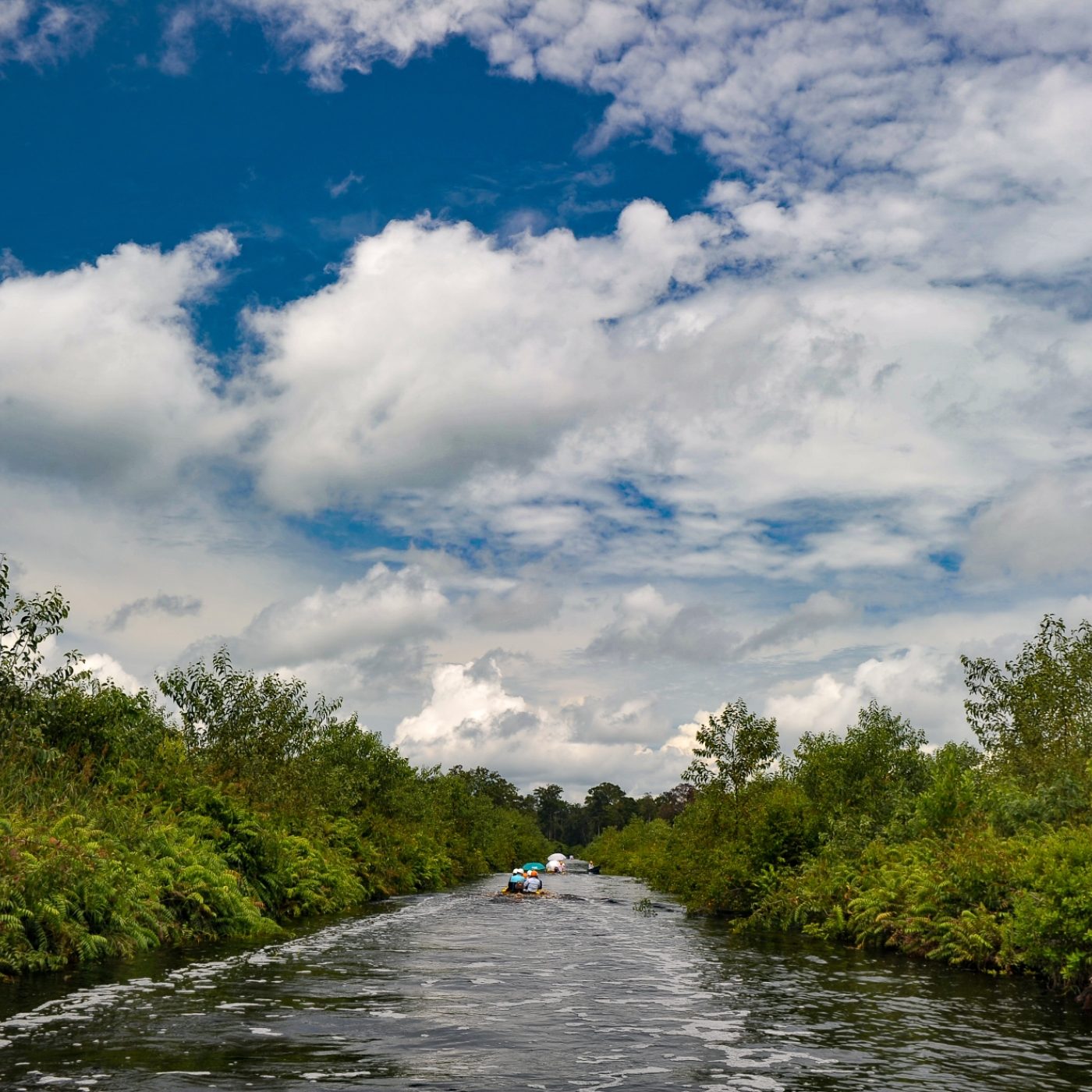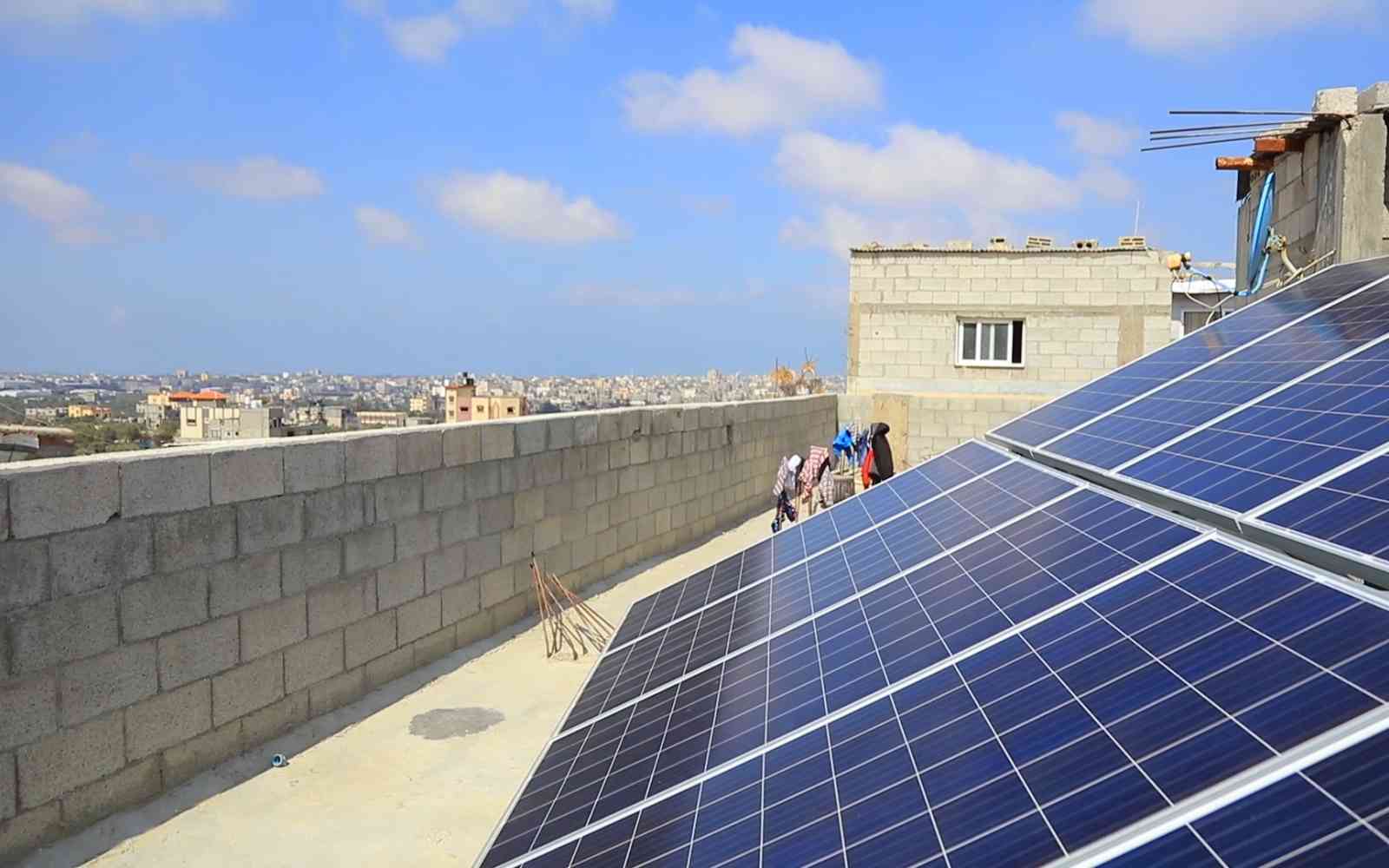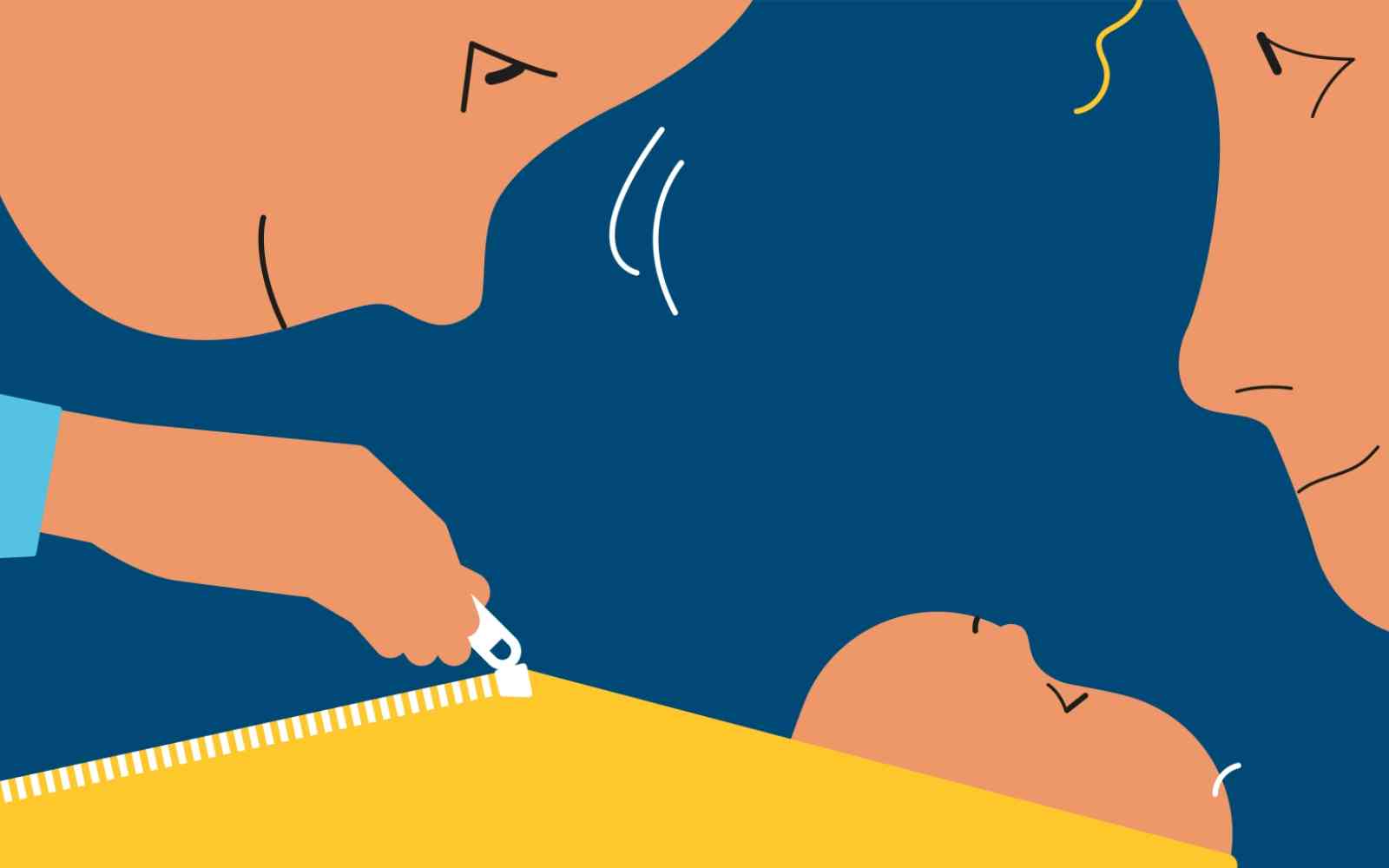The United Nations Office for Project Services (UNOPS)

Restoring Indonesian peatlands, protecting our planet
Indonesia is home to more than 24 million hectares of peatlands – making up approximately 36 per cent of the world’s total tropical peatlands*. In its natural state, tropical peat occurs in flooded swamps and is one of nature’s most effective ways of removing carbon from the atmosphere, helping to mitigate global warming.
Decades of draining peatlands to provide land for palm oil, paper and rubber plantations, as well as a failed rice cultivation project, has left vast areas of peatland dried out, and continues to be one of the key causes of deforestation, biodiversity loss and wetland subsidence.
Peat, essentially, is an early stage of coal – and like coal – is highly flammable. The dried peatland quickly goes up in flames and then can smoulder underground for months until the rainy season starts. Smallholder farmers and concession-holding companies use fire to cheaply clear debris to prepare land for planting.
When peat catches fires, it releases up to ten times more carbon than forest fires.
Seasonal forest and peatland fires now compromise Indonesia’s economic and social development by creating considerable threats to the environment and the health of its residents. In 2015, peat fires and its related toxic haze resulted in the hospitalization of more than half a million people due to acute respiratory infections. Direct and indirect damages cost the Indonesian national economy an estimated $16 billion.

Fires, which raged through 2.6 million hectares of forest and peatland areas on the islands of Kalimantan and Sumatra, released 1.6 gigatonne of CO2 – the equivalent of annual CO2 emissions of countries such as Germany and France.
Recognizing the important role peatlands have in storing carbon, biodiversity conservation, water resource management and livelihoods, the government of Indonesia established the Indonesian Peatland Restoration Agency (BRG). The Agency is mandated to prevent land fires – including some peatland areas – and aims to restore over 2.6 million hectares of forest and peatlands devastated by the 2015 fires.
In 2018, the BRG Results Enabling Facility programme was established with funding from the government of Norway. UNOPS manages the programme and supports the BRG in its development of an efficient and integrated peatland restoration model focusing on the effective restoration of peatlands in seven priority provinces – Jambi, Riau, South Sumatra, Central Kalimantan, South Kalimantan, West Kalimantan and Papua.
The programme works to restore peatlands while simultaneously improving education, raising awareness, strengthening institutional and local capacity and supporting environmentally sustainable livelihood options that utilize commodities native to peatlands.


As part of this, UNOPS works in partnership with BRG and Kemitraan – a national NGO – to support communities that are at the forefront of peatland restoration and conservation, which is crucial for the programme’s success. The programme provides assistance to village authorities to develop medium-term village development plans and budgets that integrate peatland restoration activities. It further strengthens cooperation between villages, and supports economic empowerment, local knowledge, and village community preparedness to prevent and overcome peat fires.
Akhmad Baihaki, a 21-year-old man from Pulantani village in South Kalimantan, is the chairman of a purun artisans group. Akhmad weaves purun – a wild grass that grows on waterlogged peatlands – to make items, such as mats and bags. For Akhmad, and many others, securing a livelihood and building a local economy became increasingly difficult as a number of villages’ traditional lands were converted to mono-crop plantations.
While the BRG programme supports Akhmad’s village in its efforts to restore peatlands, the programme simultaneously supports local residents. Training has been provided to help artists improve their craft and encourage them to organize regular meetings to discuss financial management.
“The training gave me insights on the business development of purun craft,” said Akhmad.
If managed properly, the small business has the potential to improve the economy of purun artisans.”
This programme is one of several that are helping to revitalize livelihoods by promoting alternative peat-based and environmentally sustainable income-generating activities to ensure communities thrive while peatland restoration takes place. Over time, efforts like this across the country will simultaneously decrease destructive peatland fires and protect our planet by leading to measurable reductions in greenhouse gas emissions.
* Numbers updated in October 2020











